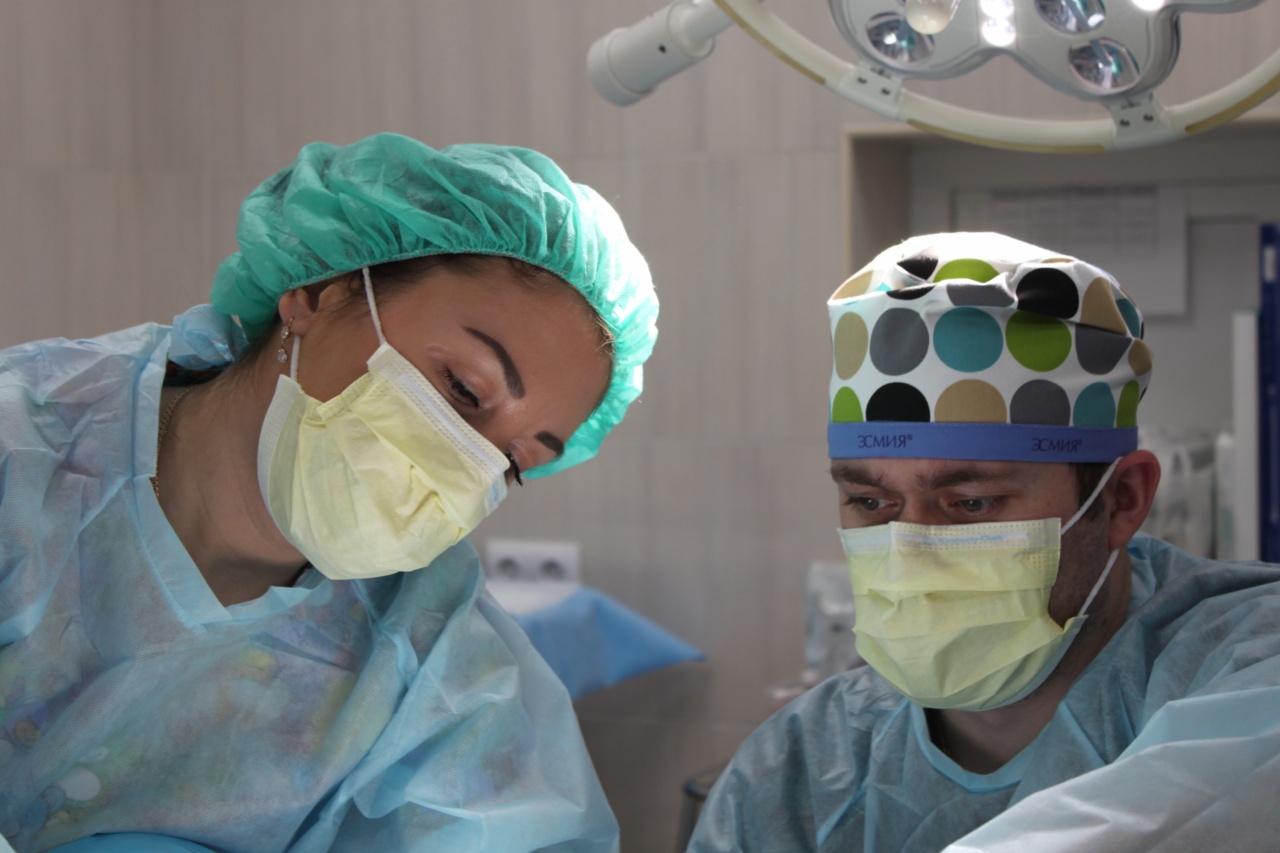Large intestine surgery, also known as colectomy, is a procedure that involves the removal of all or a part of the colon (the large intestine).
It is a significant surgical intervention that serves various purposes in promoting and maximizing overall health. This article explores the importance of large intestine surgery, its benefits, conditions that may require the procedure, the surgical process, and the recovery period.
1. Understanding the Importance of Large Intestine
The large intestine, also referred to as the colon, is a vital part of the digestive system. It plays a crucial role in the absorption of water, elimination of waste, and the regulation of electrolyte balance in the body.
Its health and proper functioning are essential for overall well-being and maintaining a healthy gastrointestinal tract.
2. Benefits of Large Intestine Surgery
Large intestine surgery offers various benefits for individuals who may be experiencing certain conditions that hinder the proper functioning of the colon. Some of the advantages include:.
a) Removal of Cancerous or Precancerous Tumors
If cancerous or precancerous growths, such as colorectal cancer or polyps, are detected in the large intestine, surgery becomes necessary. Removing these tumors can help prevent the spread of cancer and potentially save lives.
b) Treatment of Inflammatory Bowel Diseases (IBD)
Conditions like Crohn’s disease and ulcerative colitis fall under the category of inflammatory bowel diseases.
When medications and other non-surgical treatments fail to manage the symptoms, large intestine surgery can offer relief and improve the quality of life for those affected.
c) Management of Diverticulitis
Diverticulitis, a condition characterized by inflamed pouches in the colon, can cause severe pain and complications. Surgery may be recommended to remove the affected part of the colon, alleviating symptoms and reducing the risk of complications.
d) Treatment of Bleeding or Perforation in the Colon
In cases where the colon is damaged due to injury, bleeding, or perforation, immediate surgical intervention may be necessary. Surgery can address the issue and prevent potentially life-threatening complications.
e) Resolution of Bowel Obstruction
A blocked or obstructed colon can lead to discomfort, pain, and bowel irregularities. Surgery can help remove the obstruction, allowing for normal bowel movements and relieving symptoms.
3. Conditions That May Require Large Intestine Surgery
Several conditions may necessitate large intestine surgery. Some of the most common include:.
a) Colorectal Cancer
Colorectal cancer, one of the most prevalent types of cancer, may require large intestine surgery for tumor removal. This procedure is often combined with other treatments like chemotherapy and radiation therapy.
b) Inflammatory Bowel Disease (IBD)
Chronic conditions like Crohn’s disease and ulcerative colitis may necessitate large intestine surgery when medication and other non-surgical approaches fail to manage symptoms and complications.
c) Diverticulitis
Severe diverticulitis cases that do not respond to conservative treatments may require surgical intervention to remove the affected part of the colon.
d) Bowel Obstruction
When the colon becomes blocked, either due to tumors or other causes, large intestine surgery may be necessary to resolve the obstruction and restore normal colon function.
e) Intestinal Polyps
Large intestinal polyps, abnormal growths that protrude from the lining of the colon, may require surgical removal to reduce the risk of cancer development.
f) Intestinal Fistula
Intestinal fistulas are abnormal connections between different parts of the intestine or between the intestine and other organs. Surgical intervention may be needed to repair the fistula and prevent complications.
4. The Surgical Process of Large Intestine Surgery
Large intestine surgery is a complex procedure that requires extensive planning and preparation. Here is a brief overview of the surgical process:.
a) Preoperative Preparation
Prior to surgery, a thorough evaluation will be conducted. This includes a physical examination, medical history review, and various diagnostic tests.
The surgeon will also provide instructions on dietary restrictions and bowel preparation to ensure a clean colon before the procedure.
b) Anesthesia Administration
Large intestine surgery is typically performed under general anesthesia. This ensures the patient is in a pain-free and unconscious state throughout the procedure.
c) Incision or Minimally Invasive Approach
During the surgery, the surgeon will make an incision in the abdomen or use minimally invasive techniques such as laparoscopy or robotic-assisted surgery. The approach chosen depends on the specific condition and the surgeon’s expertise.
d) Removal or Repair
If a part of the colon is being removed, the surgeon will carefully detach it and secure the remaining edges. In certain cases, repairs may be conducted instead of removal.
e) Closure and Recovery
After removing or repairing the affected area, the surgeon will close the incisions using sutures or staples. Drainage tubes may be inserted to facilitate fluid removal.
The patient is then moved to a recovery room for close monitoring during the initial postoperative period.
5. Recovery and Aftercare
Following large intestine surgery, a comprehensive recovery and aftercare plan is crucial for optimal healing. The length of the recovery period varies based on the extent of the surgery and individual factors.
Here are some general aspects of postoperative care:.
a) Hospital Stay
After the surgery, patients typically remain in the hospital for a few days. During this time, they receive intravenous fluids and medications to manage pain and prevent infection.
b) Wound Care
Careful wound care is essential to minimize the risk of infection and promote healing. Patients are provided with instructions on dressing changes, keeping the incision sites clean, and monitoring for any signs of complications.
c) Medication and Pain Management
Pain medication will be prescribed to manage postoperative discomfort. It is essential to take these medications as directed and report any unusual or severe pain to the healthcare provider.
d) Diet and Bowel Function
Initially, the patient may be placed on a liquid or low-fiber diet to allow the colon to heal. The diet is gradually advanced to include solid foods as tolerated.
The healthcare team will provide personalized dietary guidelines and monitor bowel function during the recovery period.
e) Physical Activity and Resumption of Normal Routine
Gradual resumption of physical activity is necessary to prevent complications and aid in recovery. The healthcare team will provide guidance on when and how to gradually increase activity levels, as well as any restrictions or precautions to observe.
f) Follow-up Appointments
Regular follow-up appointments with the surgeon are crucial to monitor progress, address any concerns, and ensure a successful recovery. The healthcare team will provide instructions regarding the frequency and timing of these appointments.
6. Potential Risks and Complications
As with any surgical procedure, large intestine surgery carries certain risks and potential complications, including but not limited to:.
a) Infection
Infections at the incision sites or in the abdominal cavity can occur. Proper wound care and adherence to postoperative instructions help minimize the risk of infection.
b) Bleeding
Sometimes, surgical incisions may result in bleeding. In rare cases, extensive bleeding may require additional intervention or blood transfusion.
c) Anesthetic Reactions
Adverse reactions to anesthesia can occur, although they are relatively rare. Anesthesia-related risks are thoroughly evaluated before the procedure to ensure patient safety.
d) Deep Vein Thrombosis (DVT)
After surgery, blood clots in the deep veins of the legs can develop. Measures such as early mobilization and the use of compression boots or medications are employed to reduce the risk of DVT.
e) Anastomotic Leakage
In some cases, the site where the remaining colon is attached to the rectum may leak stool or digestive fluids. Close postoperative monitoring helps detect and manage this complication.
f) Bowel Obstruction
Scar tissue formation or adhesions can lead to bowel obstruction in some cases. Proper postoperative care and regular follow-up appointments aid in early detection and management.
7. Enhancing Gastrointestinal Health
Large intestine surgery plays a significant role in optimizing gastrointestinal health and overall well-being.
By effectively managing various conditions, it helps individuals regain their quality of life and reduce the risk of complications associated with disorders of the colon.
8. Conclusion
Large intestine surgery, also known as colectomy, offers numerous benefits for individuals faced with conditions that affect the colon’s proper functioning.
Cancer, inflammatory bowel diseases, and other conditions may require surgical intervention to remove tumors, repair damage, or address complications. The surgical process is complex, and close postoperative care is essential in ensuring a smooth recovery.
By maximizing health through large intestine surgery, individuals can regain their quality of life and achieve enhanced gastrointestinal well-being.






























